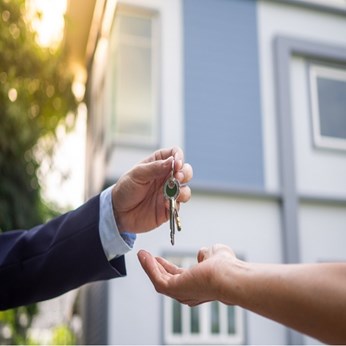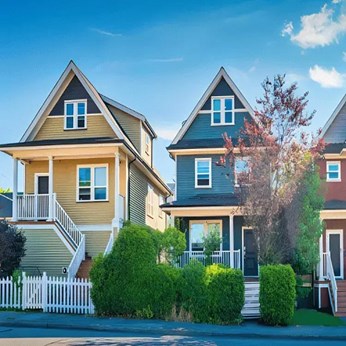Understanding Common Rental and Roommate Agreements
Renting an apartment or house and deciding to live with roommates can be exciting steps toward independence. However, ensure you fully understand the legal agreements before signing any contracts. Here are some key elements to expect in typical rental and roommate agreements.
Responsibilities of the Landlord
The landlord or property management company has certain responsibilities when you rent from them. This includes maintaining the property livable, making necessary repairs, providing a habitable space, respecting your privacy, and adhering to state rental laws. Ensure you understand their obligations for maintenance requests, notice before entering, and address safety or code issues.
Security Deposits
Most standard rental agreements require a security deposit, typically equal to 1-2 month's rent. The landlord holds this deposit during your lease term and can only draw from it if you damage the unit. Normal wear and tear are not grounds for losing your deposit. Ensure your agreement outlines when they will return your full deposit if you leave the property in good condition.
Rent Payments
Rental agreements spell out the monthly rental rate, when rent is due each month, acceptable forms of payment, and any late fees that may apply. Know the grace period before late fees kick in and how many days' notice the landlord must provide before increasing the rent. Track all rent payments to avoid disputes.
Rental Rules and Regulations
Landlords often have additional rules around guests, pets, noise, shared common spaces, and parking. Make sure you carefully review and comply with all rules before signing. Ignoring posted rules can potentially lead to eviction. Roommate agreements stipulate house rules agreed upon by all roommates.
Maintenance and Repairs
Standard rental agreements explain your rights related to requesting maintenance and repairs. Landlords must fix issues that affect habitability, like heat, plumbing, electricity, or hazards. Some smaller issues may be your responsibility. Know the proper protocol for submitting and following up on maintenance requests.
Termination Notice Policies
Review how much notice you and your landlord must provide before terminating your lease agreement. Typically, you must notify 30-60 days in advance if you do not intend to renew your lease at the end of a term. Landlords also cannot make you vacate immediately without adequate written notice.
Subletting and Assignment
If you wish to sublet your space or assign your lease to someone else, ensure this option is permitted in your rental agreement. There may be restrictions on subletting or additional approval requirements. Follow proper procedures to avoid lease violations.
Governing State Laws
Each state has specific landlord-tenant laws that govern rental agreements. Become familiar with your state and local tenants' rights. Many clauses cannot violate fair housing, antidiscrimination, and landlord-tenant regulations. Consult state resources or housing advocates with questions.
Review the Fine Print Thoroughly
Be sure to carefully read your rental or roommate agreement before signing. You are agreeing to all terms, so do not gloss over sections. Make sure to clarify any points you find confusing or restrictive beforehand. Negotiating unclear clauses upfront is much easier than being stuck in a problematic lease.
Ready to Start Your Housing Search?
Sulekha Rooms and Rentals makes finding your next rental or compatible roommate easier. Browse listings across the U.S. and Canada and connect with verified properties and profiles. Visit Sulekha.com today to start your housing search!
Take the next step toward your goals
-
Add your room/room wanted details to find a suitable room and roommates.
-
Add details about your property or properties you're looking for to locate tenants and a place to live.
Other Housing Blogs

How to Rent Out Your Place with Sulekha Roommates
Renting Out a Room (Looking for a Roommate) Got a room to spare or a property to share? We'll help you find the right match! Whether you're offering a private room in your home or looking for a compatible roommate to split the space, Sulekha Roo

How to Find a Place to Live with Sulekha Roommates
Whether you're moving into a new city, switching neighborhoods, or simply upgrading your lifestyle, Sulekha makes finding a room or a rental home easy and efficient. Our platform supports both shared accommodations and private rentals - so no matter

Top Factors to Consider Before Renting a Home
Renting a home is a significant decision that can impact your lifestyle, finances, and overall well-being. Whether you’re searching for homes for rent near you or considering new homes for rent near you, it’s essential to evaluate several factors bef

How to Find the Best Rental Home Near You A Complete Guide
Finding the perfect rental home can be a daunting task, especially in a competitive market. Whether you’re relocating for work, seeking a change of scenery, or looking for a new place to call home, knowing how to navigate the rental landscape is esse

From Mississauga to Montreal: Real NRI Stories of Finding the Right Roommate
Moving to Canada is exciting, but finding the perfect roommate? That's where the real adventure begins! For thousands of Indians and South Asians pursuing dreams in the Great White North, the search for compatible housing companions has been transfor

Top 10 Factors to Consider Before Renting a House
Renting a house is an exciting step, whether you’re moving out for the first time or relocating to a new city. However, it’s essential to approach this decision with careful consideration. The right choice can lead to a happy living experience, while

Tech Workers and Shared Living: Finding Compatible Roommates in Canada's Growing Tech Hubs
The Tech Boom Meets Shared Spaces

Comparing Rental Markets: How Roommate Dynamics Differ Between Canadian and American Cities
Ever wondered why your American friend's roommate horror stories sound so different from what you hear in Toronto or Vancouver? The rental game might look similar on both sides of the border, but dig a little deeper and you'll find some fascinating d

House Renting Checklist: What to Inspect Before Signing a Lease
Renting a house is exciting—new space, new vibes, and maybe even a fresh start! But before you get too swept up in the excitement, it’s important to take a few smart steps to ensure your dream home doesn’t turn into a rental nightmare. Whether you're

From Toronto to Vancouver: Top Cities in Canada for NRIs to Find Roommates
Moving to a new city is exciting, but finding the right roommate? That can make all the difference between a house and a home. Whether you're a student, a working professional, or a newcomer seeking familiarity in a new country, finding a good roomma
- Roommates in Atlanta
- Roommates in Austin
- Roommates in Baltimore
- Roommates in Bay Area
- Roommates in Boston
- Roommates in Calgary
- Roommates in Chicago
- Roommates in Cincinnati
- Roommates in Cleveland
- Roommates in Dallas Fort-Worth
- Roommates in Denver
- Roommates in Detroit
- Roommates in Hartford
- Roommates in Houston
- Roommates in Indianapolis
- Roommates in Inland Empire
- Roommates in Kansas City
- Roommates in Los Angeles
- Roommates in Miami
- Roommates in Montreal
- Roommates in New Jersey
- Roommates in New York
- Roommates in Orlando
- Roommates in Philadelphia
- Roommates in Phoenix
- Roommates in Pittsburg
- Roommates in Portland
- Roommates in Research Triangle
- Roommates in Richmond
- Roommates in Sacramento
- Roommates in San Antonio
- Roommates in San Diego
- Roommates in Seattle
- Roommates in St Louis
- Roommates in St Paul
- Roommates in Tampa
- Roommates in Toronto
- Roommates in Vancouver
- Roommates in Washington
- Roommates in Winnipeg
- Roommates in Yuba Sutter
- Roommates in Toledo
- Rentals properties in Atlanta
- Rentals properties in Austin
- Rentals properties in Baltimore
- Rentals properties in Bay Area
- Rentals properties in Boston
- Rentals properties in Calgary
- Rentals properties in Chicago
- Rentals properties in Cincinnati
- Rentals properties in Cleveland
- Rentals properties in Dallas Fort-Worth
- Rentals properties in Denver
- Rentals properties in Detroit
- Rentals properties in Hartford
- Rentals properties in Houston
- Rentals properties in Indianapolis
- Rentals properties in Inland Empire
- Rentals properties in Kansas City
- Rentals properties in Los Angeles
- Rentals properties in Miami
- Rentals properties in Montreal
- Rentals properties in New Jersey
- Rentals properties in New York
- Rentals properties in Orlando
- Rentals properties in Philadelphia
- Rentals properties in Phoenix
- Rentals properties in Pittsburg
- Rentals properties in Portland
- Rentals properties in Research Triangle
- Rentals properties in Richmond
- Rentals properties in Sacramento
- Rentals properties in San Antonio
- Rentals properties in San Diego
- Rentals properties in Seattle
- Rentals properties in St Louis
- Rentals properties in St Paul
- Rentals properties in Tampa
- Rentals properties in Toronto
- Rentals properties in Vancouver
- Rentals properties in Washington
- Rentals properties in Winnipeg
- Rentals properties in Yuba Sutter
- Rentals properties in Toledo